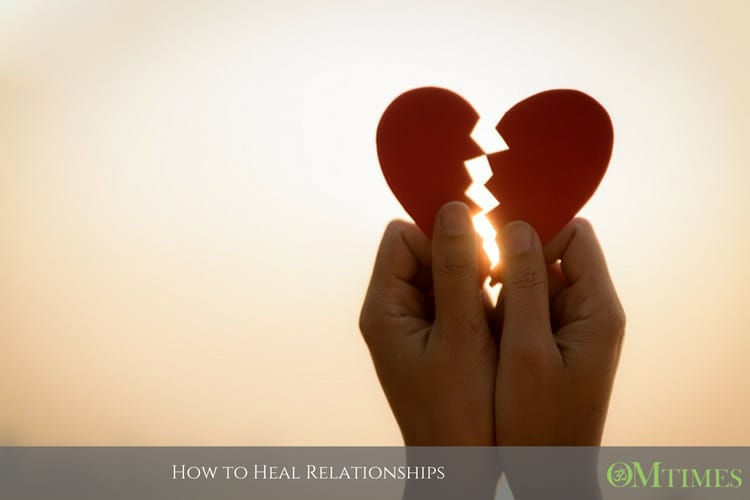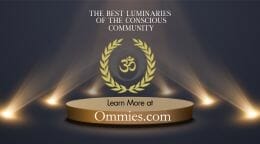How to Heal Relationships

All relationships go through times of hurt and pain, but good relationships are worth the effort to heal them.
Healing Relationships – What’s love and communication got to do with it?
Truly loving, nurturing and sustainable relationships are not happening for a great many of us. The reasons for this have to do with our ego getting in the way, with our unwillingness to be more thoughtful, tolerant and considerate, with our unwillingness to rise above the battlefield, to release our anger and resentments from the past, to effectively communicate, to negotiate differences and to establish, maintain and respect boundaries.
I say unwillingness because although it may be difficult to do these things, we choose not to. Loving, sustainable relationships are not the result of accidents or luck, they are the result of healthy choices.
It’s profound the degree to which most of us treat strangers, acquaintances, co-workers and friends much better than we treat our loved ones. With our loved ones, we forget about being compassionate, generous, selfless, considerate, empathetic and loving. We take them for granted. We ridicule them. We shame them. We ignore their needs and invalidate their feelings. And then we complain that we don’t have the relationship that we want.
This isn’t tricky stuff. If we want to have a loving relationship, we need to be loving. If we want to be understood, we need to understand. If we want to be appreciated, we need to appreciate. If we want to be respected, we need to respect. If we want consideration, we need to be considerate. If we don’t want to be judged and shamed, we need to not judge and shame. If we want to be forgiven, we need to forgive.
The Golden Rule
We reap what we sow. It’s the Golden Rule and it works: When we treat others as we wish to be treated we tend to receive what we give. Our world gets better. Our relationships become more loving, more nurturing, more satisfying and more enduring.
So that’s the ticket: We choose to be generous. We choose to be grateful. We choose to be gracious. We don’t assume the worst. We give our partner the benefit of the doubt. When our partner says or does something that we feel is inconsiderate or unloving we don’t immediately assume they wanted to attack us and hurt us. We don’t immediately go into an aggressive attack mode.
We remind ourselves that in the past we have said and done things that were thoughtless, inconsiderate and unloving, and at those times we wanted our partner to understand, to tolerate our mistakes, to not hold it against us and to forgive us. And so this is what we choose to do with our partner. We accept, we tolerate, we overlook, we forgive.
We don’t need to turn every thoughtless word or action from our partner into a battlefield. We can choose to not sweat the small stuff. We can choose to remind ourselves that they love us, they care about us, they’re not trying to hurt us. We can let it go. We don’t have to make a big stink about it.
WWould You Rather Be Right or Be Happy?
Oftentimes, when we feel wronged, we become insistent about confronting our partner, getting in their face, demanding that they feel guilty and shamed, demanding that they own their transgression, demanding an apology. And it’s oftentimes over minor stuff. And it’s oftentimes over stuff that could be open to interpretation. For example, when we’re feeling insecure we are more likely to perceive an innocuous comment from our partner as an attack. And this prompts us to go into our attack mode.
When we go into our attack mode and insist that we are right and they are wrong, we are loving and they are not, we are cool and they are cruel, and that they need to capitulate and apologize for their horrible acts, this oftentimes causes greater polarization in the relationship, greater antagonism and resentment.
If we don’t get their capitulation, everyone is upset. If we do get their capitulation, oftentimes everyone is still upset because of all the fighting that preceded it. Point being if we insist on getting an acknowledgment that we are right, we usually end up not being happy. If we decide to stop needing to prove that we are right and instead choose our battles and choose to not make mountains out of molehills, we end up being happy.
Stop Yelling and Disengage
One of the most obvious obstacles to our happiness in relationships is all of the yelling that we engage in. When we are yelling at each other we are not effectively communicating. We are not listening to the other person’s point of view. There is no true dialogue.
Consequently, the best thing to do when we’re yelling at each other is to stop yelling and disengage. We agree that we’re not being productive, that we should table the argument for a while, go our separate ways for a while, give each other some space for a while. We agree to re-engage in the disagreement at a later time when we’ve both cooled off, have had a chance to think about all the issues involved, and are prepared to calmly discuss, mediate and negotiate a peaceful resolution of the problem where both party’s needs will be taken into consideration.
Validate, Sooth and Then Counterpoint
When we are engaged in an argument we oftentimes respond to what we perceive as an attack with an attack. We engage in all sorts of name-calling, shaming and blaming. It is all extremely invalidating to the other person. And it usually leads to them being infuriated, them responding with anger, aggression and name calling of their own, and an escalation from a potentially minor issue to World War III.
So here’s what we do: When we feel someone is unfairly accusing us of something, we take a moment to think before we speak. And then we validate their feelings. We let them know we have listened to what they said. We have heard their complaint. We understand why they perceived the situation the way in which they did.
And then we soothe them as well. We take the time to remind them that we love them. We care about them. It is not our intention to hurt them in any way. Their feelings matter to us.
And then we counterpoint: We express our position, our perspective on what happened.
By first taking the time to validate and soothe them, they are much more likely to not get defensive and angry when we challenge their perceptions, and they are much more likely to be in a frame of mind where they can hear our position and calmly discuss and resolve the conflict.
You will also enjoy Conscious Love and Soul Maturity
About the Author
Dr. Jacobson, a graduate of Cornell University, the Medical College of Wisconsin, and the UCLA / San Fernando Valley Psychiatry Residency Program, is a Board-Certified Psychiatrist who specializes in cognitive-behavior therapy, couples therapy, and past life regression therapy. In addition, he is a best-selling Author (“Forgive To Win!” and “Einstein’s Cosmic Journey”) and a Motivational & Inspirational Speaker. His YouTube videos and his blogs on his website http://walterjacobsonmd.com offer people spiritual techniques and cognitive tools for achieving happiness, physical well-being, and success in all realms of their lives.
OMTimes Magazine is one of the leading on-line content providers of positivity, wellness and personal empowerment. OMTimes Magazine - Co-Creating a More Conscious Reality










THE GOLDEN RULE”We reap what we sow. It’s the Golden Rule and it works: When we treat
others as we wish to be treated we tend to receive what we give.”
I have to disagree with this golden rule… When I treated someone else like I wished I was treated, I received less than what I deserved…
I think you need to be in a relationship with an aware person for this Golden Rule to work. I personally treated someone the way I wished to be treated, and like the person who posted below, I was also continually treated like crap until I left and found someone infinitely wonderful.
Me too. It just doesn’t happen with some people. When you finally realize the other person has no soul, you finally have to give up. Once something so profound happens to you by the other person, you just dont have the heart or spirit to do good to others anymore. oo much damage to the soul. You learn to protect yourself at ALL cost. Makes me think I don’t belong on this Earth. I will never understand how some can be so cold and cruel and unfeeling toward another. I feel I’m defnetly not with the right species.